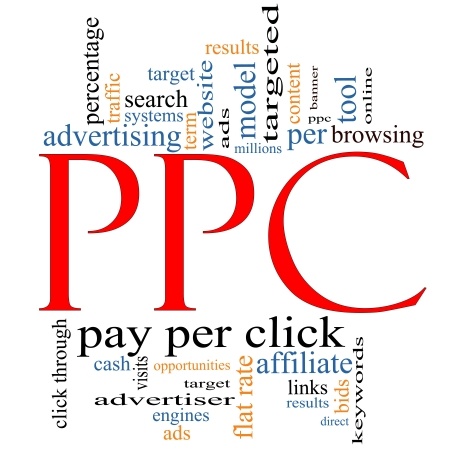Managing a Pay Per Click (PPC) campaign for business-to-business (B2B) is a much different animal from running paid-search campaigns targeting consumers.
In a B2B environment, products and solutions are more complex, the audience is more sophisticated, the price tag is much higher, sales cycles are longer, and there are multiple decision-makers and influencers. Plus, advertising budgets are often much smaller.
There are many variables to tackle in any PPC campaign. This article focuses on 5 keyword strategies for B2B search engine advertising.
1) Start With Highly-targeted Keywords – When starting a B2B search engine advertising campaign, never, ever start with a one-word keyword! And be very careful even when selecting any two-word keywords.
B2B bids will usually be higher than in a B2C environment, and your primary objective (typically) is to generate well-qualified leads.
So, conserve your budget early by carefully choosing keyword phrases that are directly applicable to a product or service offering. Be as specific as possible, and try to put yourself in a potential customer’s shoes.
For example, if your business is in the data-warehousing space, you would certainly not bid on “data” to start out, and you may want to bid only on phrase match (quotation marks around the phrase) and exact match (brackets around the phrase) for your primary two-word phrases such as “data warehouse” and “data warehousing.”
2) Jump Right Into Markets & Technical Terms – You may also consider bypassing the high-level concept of your products/services, and going right after a particular vertical market by targeting something like “financial data warehouse” and/or “finance data warehouse.” Again, start with phrase and exact match to gauge the level of search activity before adding broad-match versions of the keywords.
Or, instead of targeting a specific vertical market, consider going deep quickly by starting your campaign by bidding only on very technical terms that the immediate purchaser/end user would be searching for.
There will be a time when you will want to open up your keyword selection to broader terms, enabling you to test out the market and to attract the higher-level decision-makers. These are the folks that may not take any action on your website at all, but will ask someone on their team to investigate further. (This of course makes tracking ROI more difficult, but it is often a necessary strategy to build brand awareness.)
3) Users Do Not Search for “Solutions” – When choosing keywords, you can try extending your keywords using the word “solutions,” but our experience shows that users rarely search with that word. Be sure to use other descriptive extenders like “software,” “services,” “tool(s),” “product(s),” “company(ies),” “provider(s),” “consultant(s),” and “vendor(s).”
4) Apply Negative Keywords Generously – In search advertising you have the opportunity to add negative keywords to a campaign or ad group that will prevent your ads from being triggered when those words are included in a search query. Some common negative keywords to consider in B2B are:
Free, cheap, discount(ed), liquidation, close out, used, retail, job(s), salary(ies), employment, internship(s), resources, research, statistics, metrics, journal(s), association(s), links, open source, how to, create, creating, home, homemade, etc.
The choice of negative keywords will depend on your industry, but you can get creative and generate lists of words that you would not want your ad to be triggered for.



